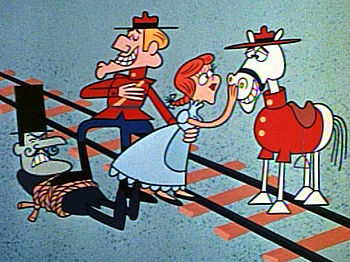Hi, my name is Steve and I’m an addict.
Of course, we are all addicted to something. Sleep or chocolate or coffee or
something. Addiction isn’t always the
mine field we need to walk through, but often addictions are the archipelagos
on which life is contained. What is the
difference between a drunk and a person who eats a candy bar every day?
Perhaps the difference is between what harms ourselves and
what doesn’t. Certainly too much alcohol
and too many cigarettes are harmful, and so they are a bad addiction, while
having a sweet tooth, especially if we exercise enough and have good dental
hygiene, isn’t so bad. Of course,
anything in excess will kill us, and we don’t consider the items themselves to
be problematic. Why is addiction to meth—which
destroys oneself completely— unacceptable and illegal, but addiction to Big
Macs aren’t? Why don’t the all you can
eat pizza bar managers go around telling people, “I think you’ve had enough”
like a bartender?
Perhaps an unacceptable addiction is due to the harm that it
causes others? Alcohol addiction
destroys families but an addiction to porn rarely harms anyone (at least
physically. Socially it may be a
problem). Yet we seem to judge
addictions according to type, not to harm done.
If a person has meth on their person, they are arrested not because they
have done harm to others, but simply because they have the drug.
The other issue is that especially in the West, we almost
all have addictions that causes harm to others.
Chocolate is often picked by slaves, that’s why it is so cheap. Our addiction to cheap gas has killed
hundreds of thousands of people around the world. Yet few people (or nations) go to 12 step
groups about their dependence on oil.
There are some kind of addictions that are completely acceptable not
because the harm to others isn’t known, but because the harm is an acceptable
price for the addiction. While other
addictions it is not.
Perhaps some addictions are acceptable because of the level
of dependence. A person who is addicted
to drugs is consumed by it, where their life revolves around it. They eat, drink and sleep their addiction and
nothing is done without reference to that addiction. Like a young mother about her children, or an
older person about a bowel movement. Or
like a cancer patient about their disease.
Actually, we recognize that there are some obsessions that are
important.
Then perhaps what society doesn’t accept is the cost to
society at large. Alcohol-related
diseases take a huge toll on lives and the health industry. But not as much as lack of exercise. And the United States’ addiction to meddling
in other nation’s affairs is far more expensive than any other addiction on the
planet. No, there are certain costs
society is willing to pay, even if they are unhealthy.
Perhaps the real issue is the lack of productivity. A serious addict is a person whose addiction
causes them to be fruitless, listless, lazy.
So the addict is compared to the chronically ill, or the mentally ill,
who have little capacity to be productive in society. But the addict is anathema, because they “chose”
to be addicts, while the ill have no choice.
Although personal choice certainly has an aspect in the disability of
the addict, that could also be said for some chronically ill or mentally
ill. And the route out of addiction isn’t
as simple as “making a choice”—rather, it is a long, complicated road that
often requires a will and self-examination that few have. And the reason we all have some addictions
is because some are forced to deal with their addictions, while others are not. We have all made compromises and allow harm
to come to ourselves and others because of the addictions we have because we
find them to be acceptable. Not because
they are right.
Perhaps some addictions are acceptable and others aren’t
because we are hypocrites?








